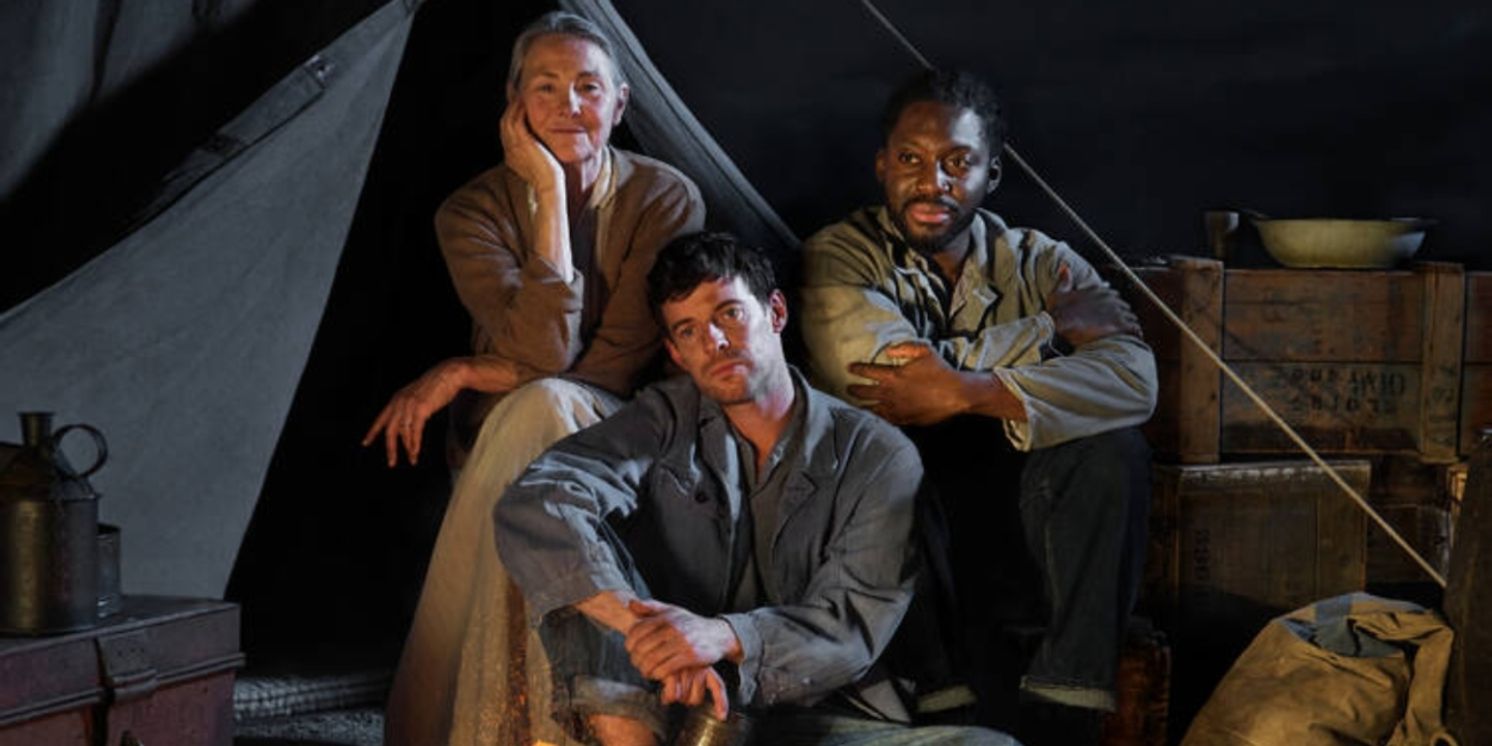Review: THE GRAPES OF WRATH, National Theatre
An arid, hefty production that sinks into the soul like only an epic can.

![]() When Steinbeck set off to write The Grapes of Wrath in the 1930s, his goal was crystal clear. He wanted to shame the ruling class, denounce their capitalistic greed that led to the Great Depression and the suffering of millions of members of the working class. If he was our contemporary, the right would call him woke.
When Steinbeck set off to write The Grapes of Wrath in the 1930s, his goal was crystal clear. He wanted to shame the ruling class, denounce their capitalistic greed that led to the Great Depression and the suffering of millions of members of the working class. If he was our contemporary, the right would call him woke.
Back then, he was exposed as a communist by the bourgeoisie. The book has entered the canon and won its author a Nobel Prize in the sixties. It’s now one of the Great American Novels, widely read in schools and universities around the world. With its themes of migration, poverty, prejudice, and change, it should still be shockingly relevant.
We follow the Joad family in their Odyssey from Oklahoma to California in an attempt to find a better life in an adaptation by Frank Galati. Trapped by a series of dust storms that damaged the crops and annihilated their chances to survive the economic crisis, leaving their home is the only choice they have. The piece is heavy in topic and method, but Carrie Cracknell’s quiet direction smooths out the nearly three hours of running time. By any means this is not an easy-breezy show to experience, but it sinks into your soul in a way that only an epic does. The problem is that it’s so, so slow and stagnant.
%20Richard%20Hubert%20Smith%200675.jpg?format=auto&width=1400)
Galati’s script might have won a Tony in 1990, but it feels sluggish 30-something years later. Cracknell doesn’t add pace to the already cumbersome dialogue, opting to stage long scenes with rather static visuals. The stillness of the bulk eases during the Joads’ car journey during the first act, which is a bit à la Little Miss Sunshine with all the household cramped in the rusty automobile.
The desolate blankness of the American plains becomes a bare set by Alex Eales where rickety pieces descend from the flies or appear from the guts of the National. It’s all very traditional, except for the large monolith of a screen that hangs at the back. It’s difficult to say whether this is simply meant to represent the vast Western skies the Joads try to ride out or if it holds another meaning. It’s there and we accept it, just like the family does with everything that’s thrown at them.
Each scene is book-ended by striking music played live by members of the ensemble. Infused with a gorgeous Western Americana sound, Maimuna Memon’s original songs are a highlight. They become a delicate commentary on the characters’ ordeals, a hook that - while extending the play even more - stirs the audience from the protracted slogs. With such sparse visuals, the production relies on the stability of the necessarily wordy script and the company’s sturdy portrayals.
Harry Treadway returns to the National years after The Curious Incident of the Dog in the Nighttime, joining the wonderful Cherry Jones as Tom’s mother and Greg Hicks as his father. Cracknell has assembled a truly cohesive choral performance. They prop each other up and bolster each other’s acts without an inch of pride or selfishness. The result of their synergy single-handedly carries the project.
%20Richard%20Hubert%20Smith%205951.jpg?format=auto&width=1400)
They introduce a family who’s resilient almost to a fault. Helping one another is second nature to each member, an element that transfers to the individual performances. The frustration with societal failure and systemic injustice is shrouded by a palatable sadness. Though this is a salt-of-the-earth text for a salt-of-the-earth story, there’s no grit here, only a polished bitterness. Cracknell’s solemn formality solidifies in the grand tableaux of despair of act two. The strange whimsy of their struggle sits right next to Steinbeck’s own invective against the exploitation of labourers and the lack of support from the government. The exploration of these topics, however, remains stuffy.
Written in 1988, Galati’s is a piece that shows its age. We wonder what Steinbeck’s classic masterpiece would look and feel like in the hands of a contemporary writer. As it is, it’s a long and arid adaptation that doesn’t add much to the current conversations about migration and poverty
The Grapes of Wrath runs at The National Theatre until 14 September.
Photo credit: Richard Hubert Smith
Reader Reviews
Videos

